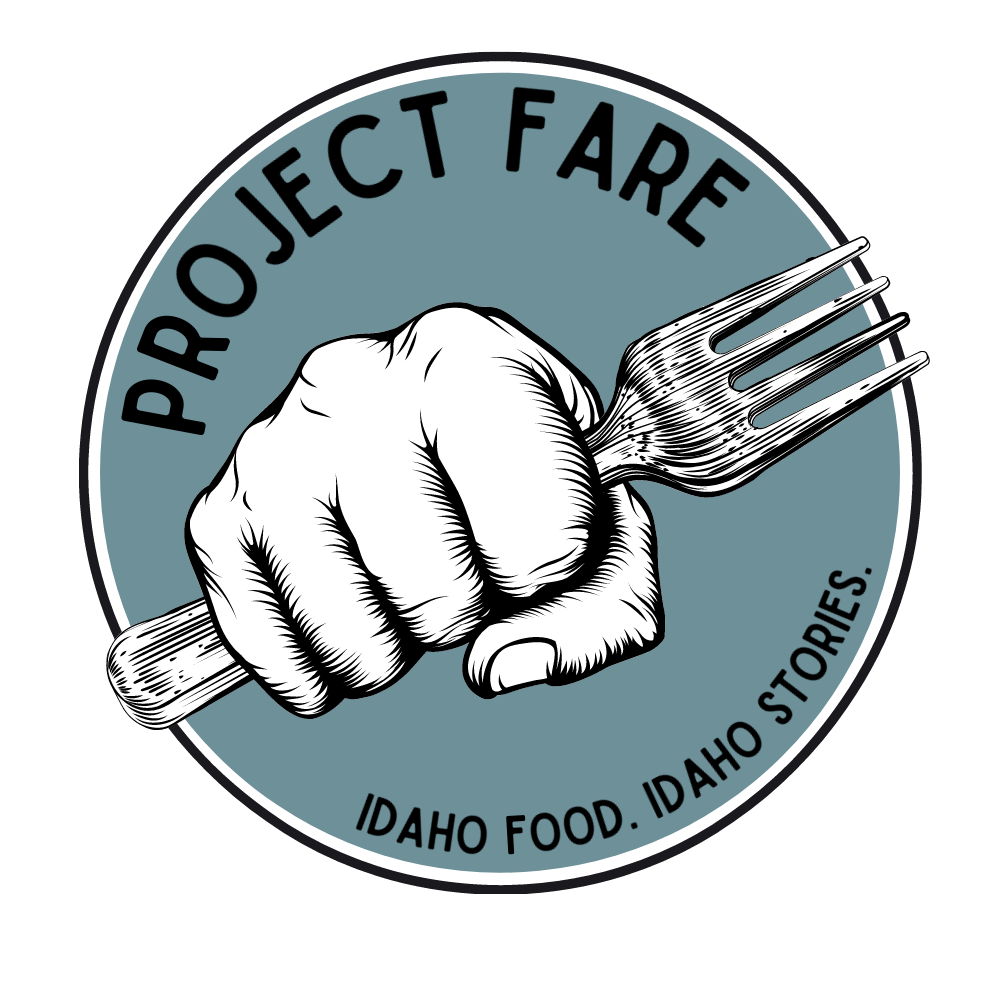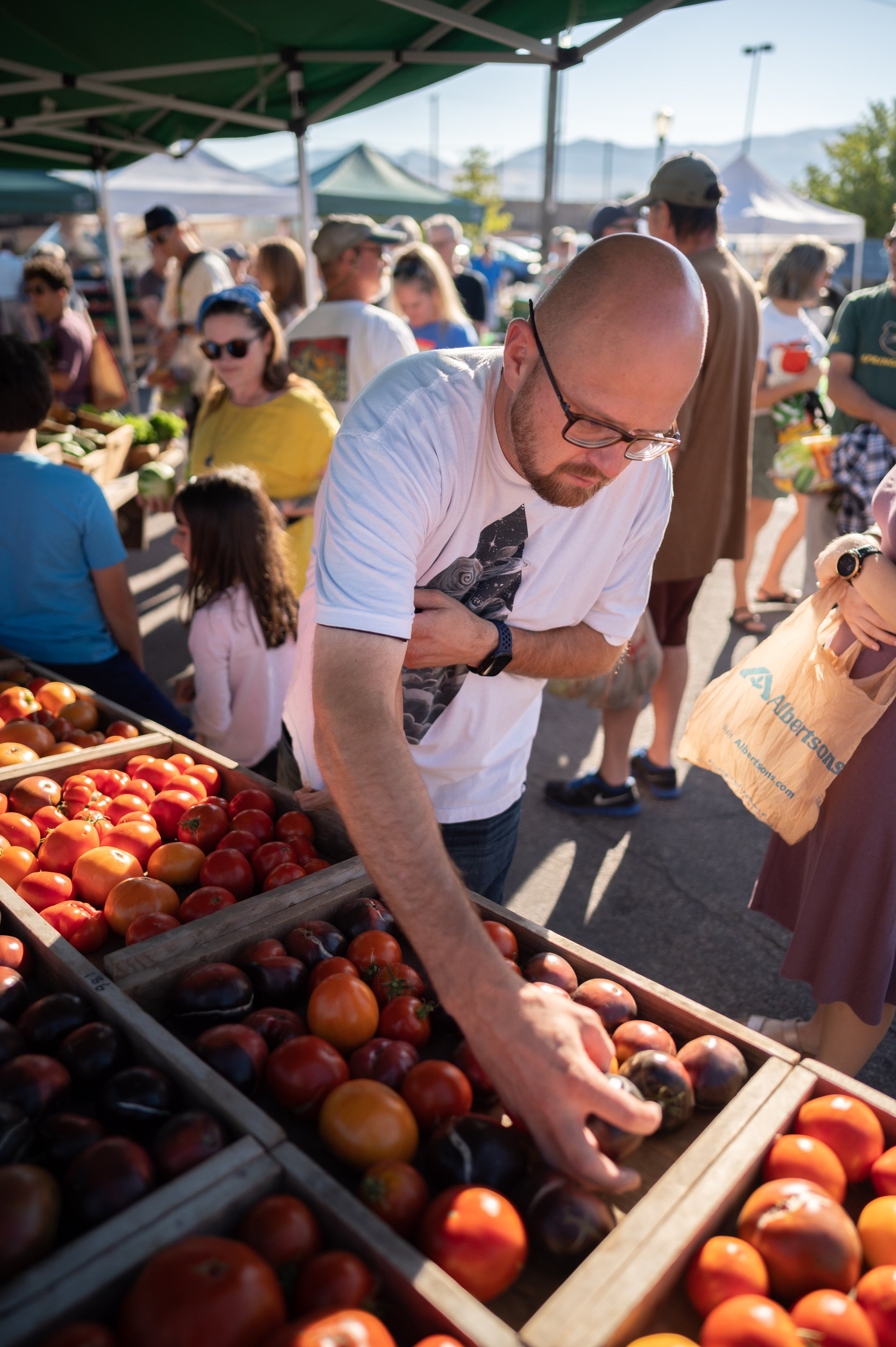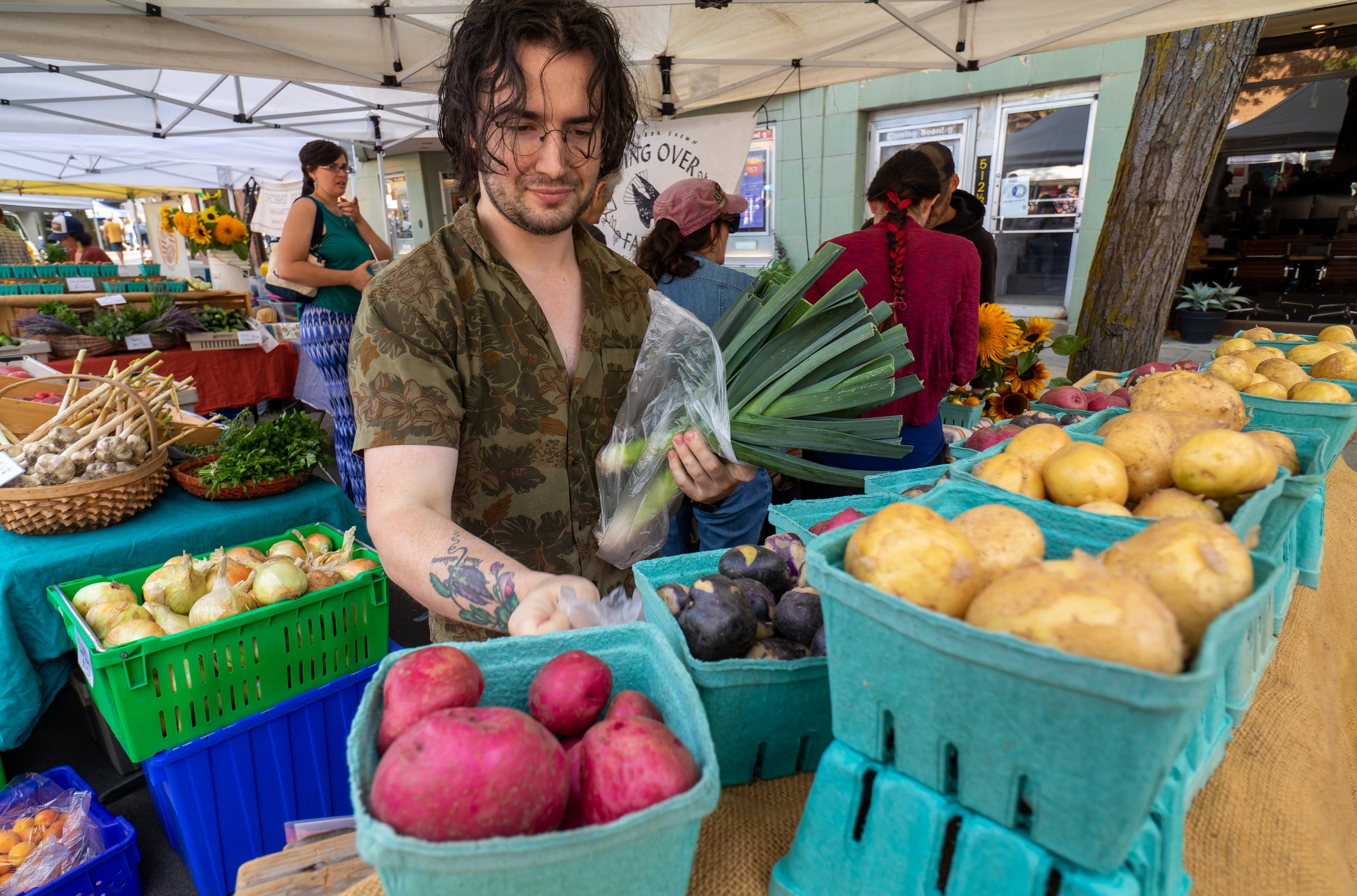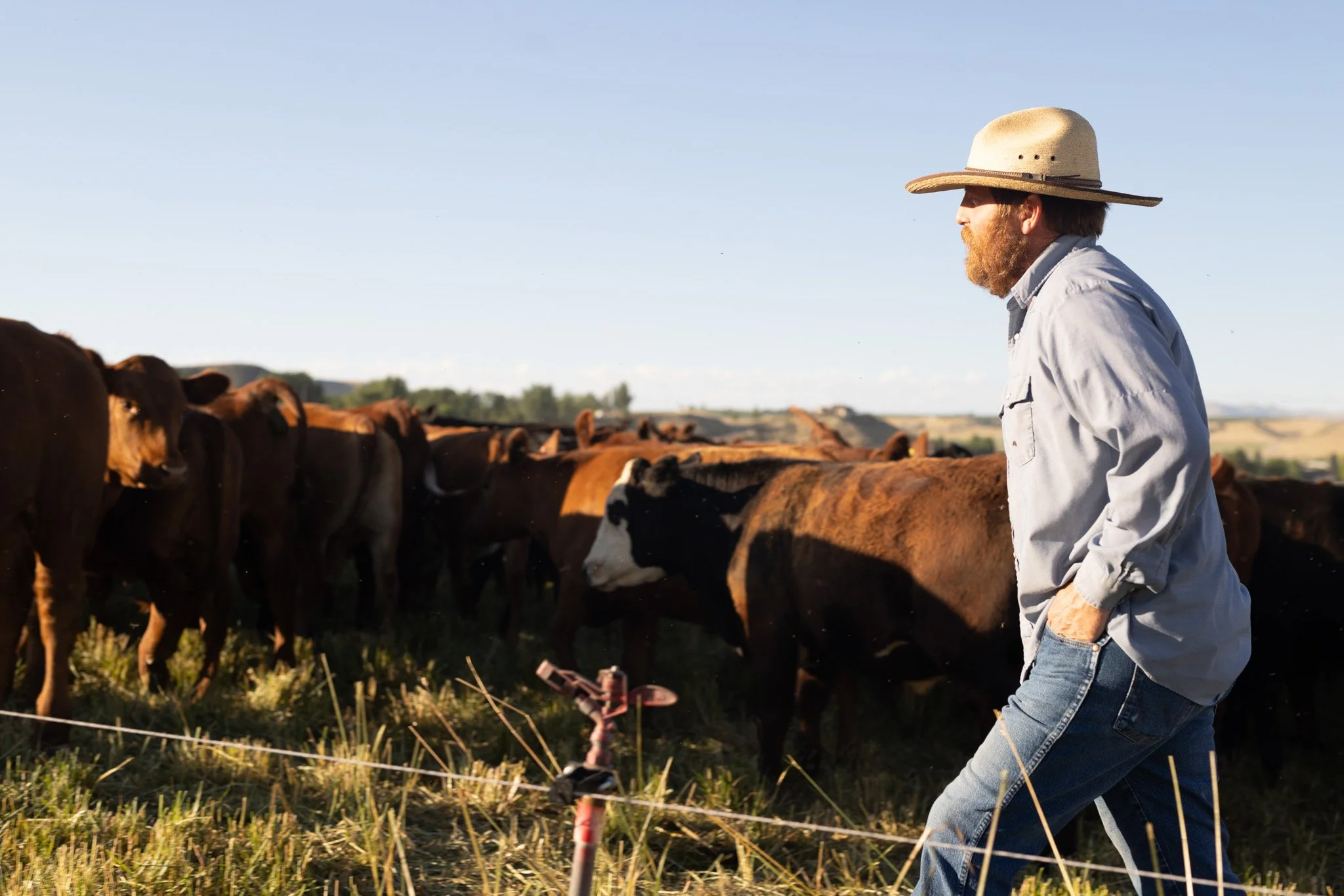Project FARE Spotlight: Bowman Farm Chef Partnership
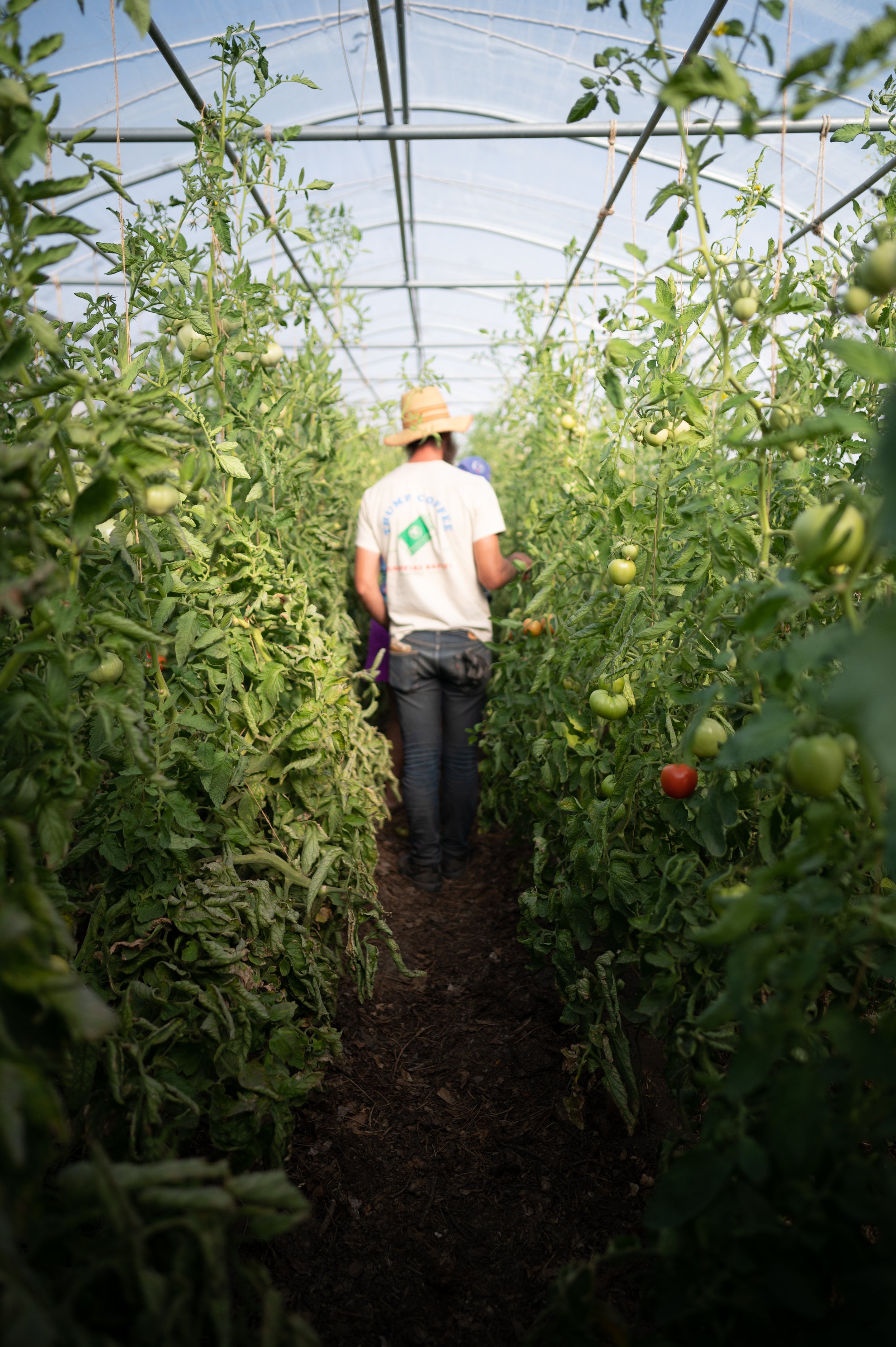
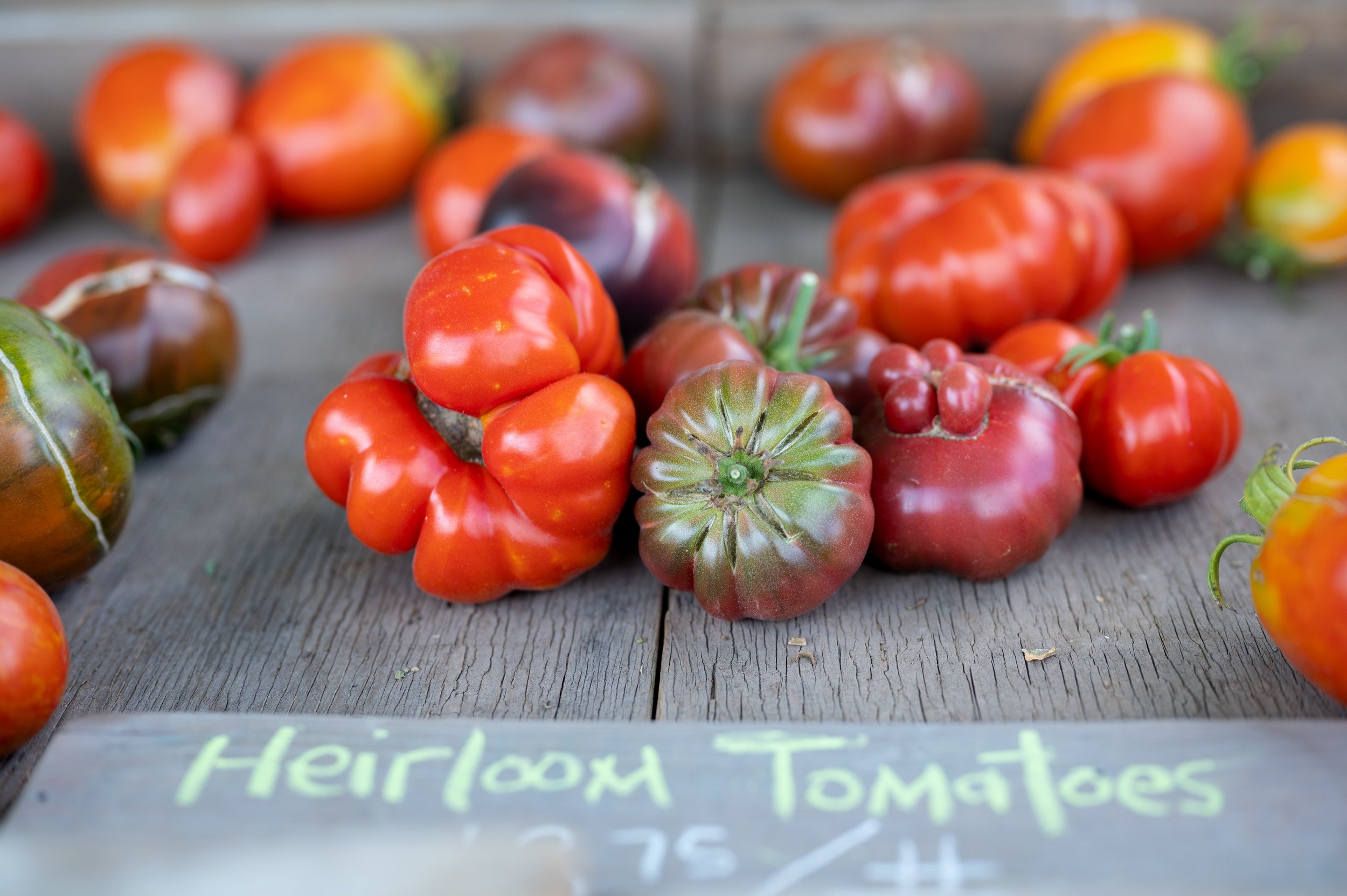
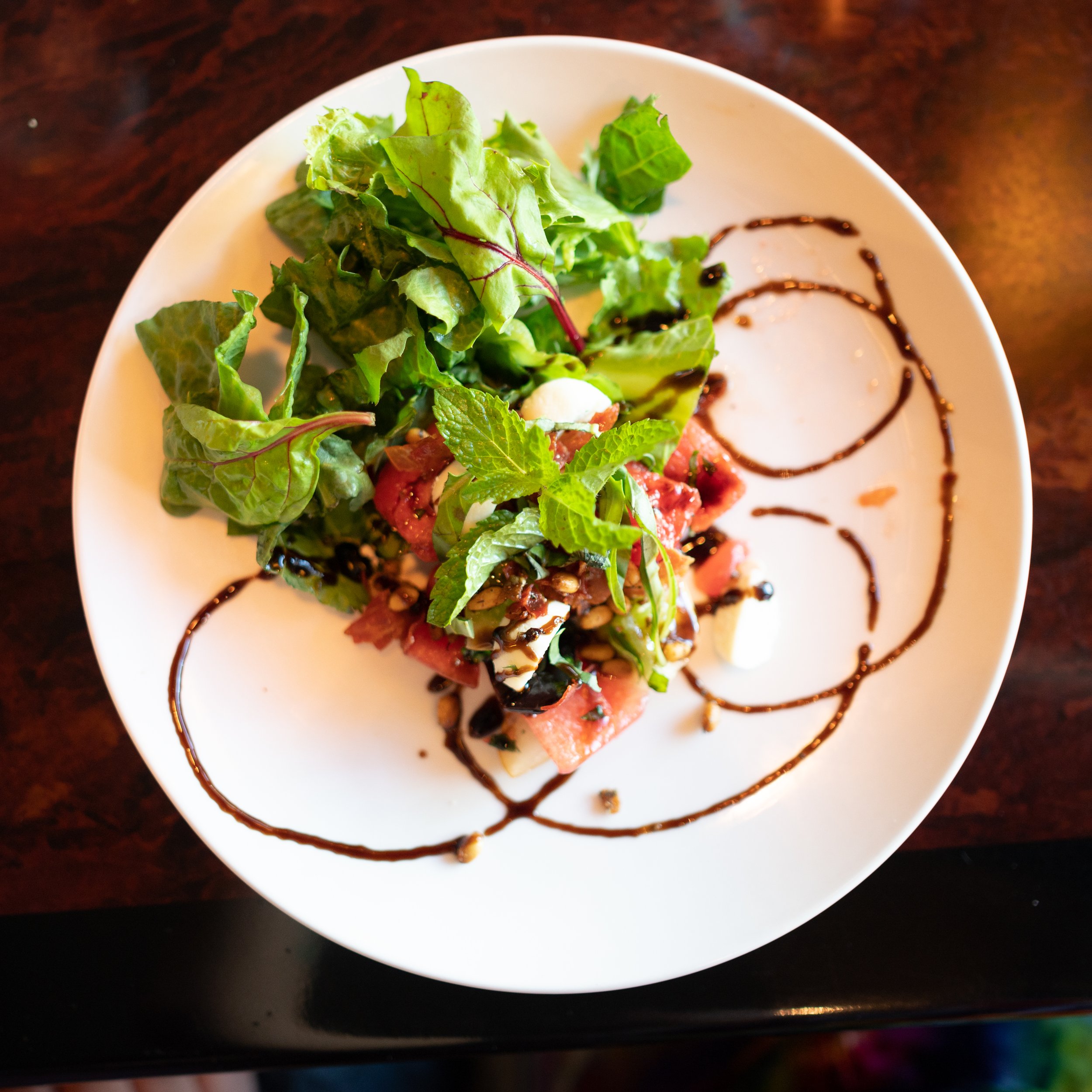
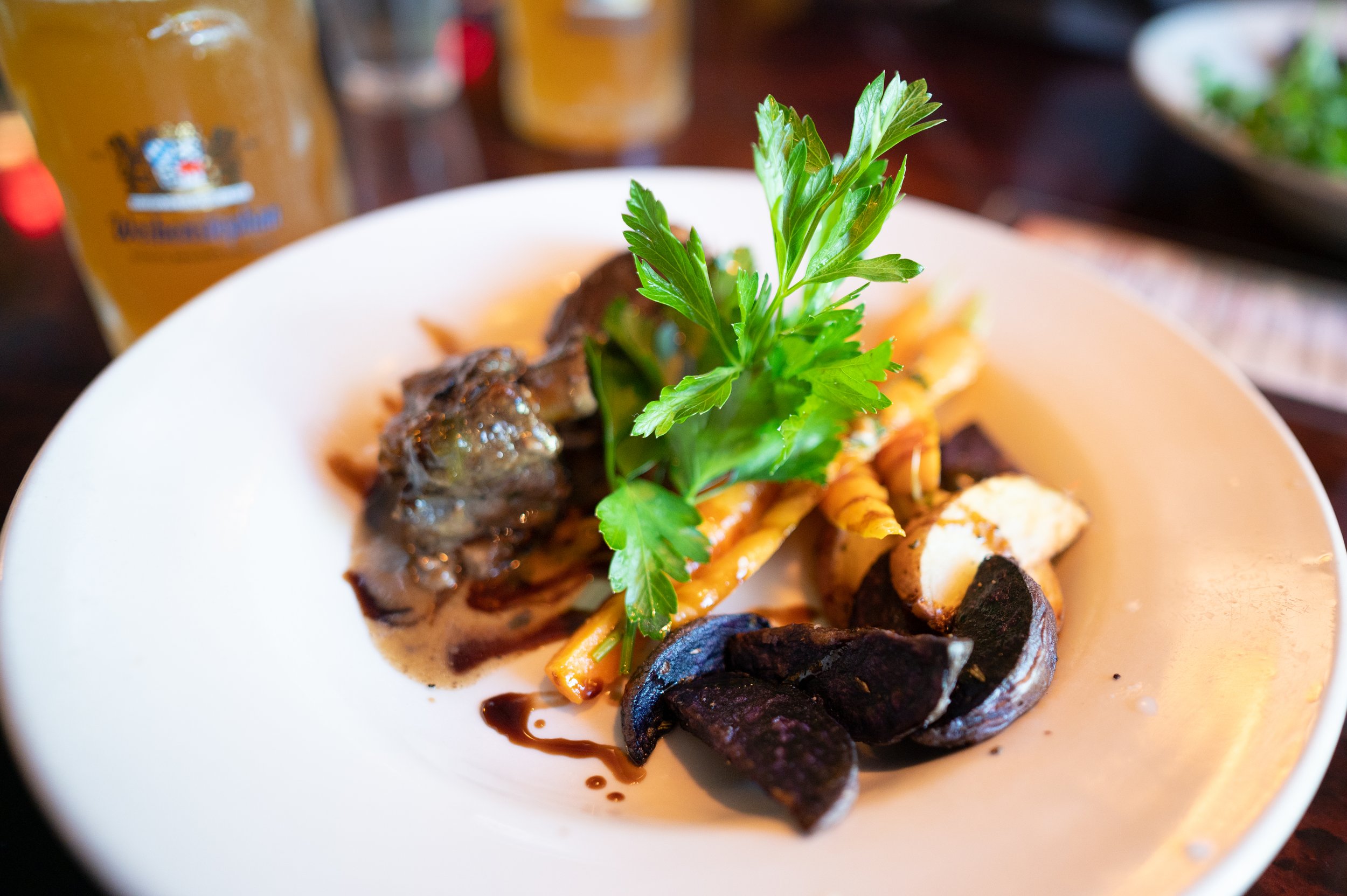
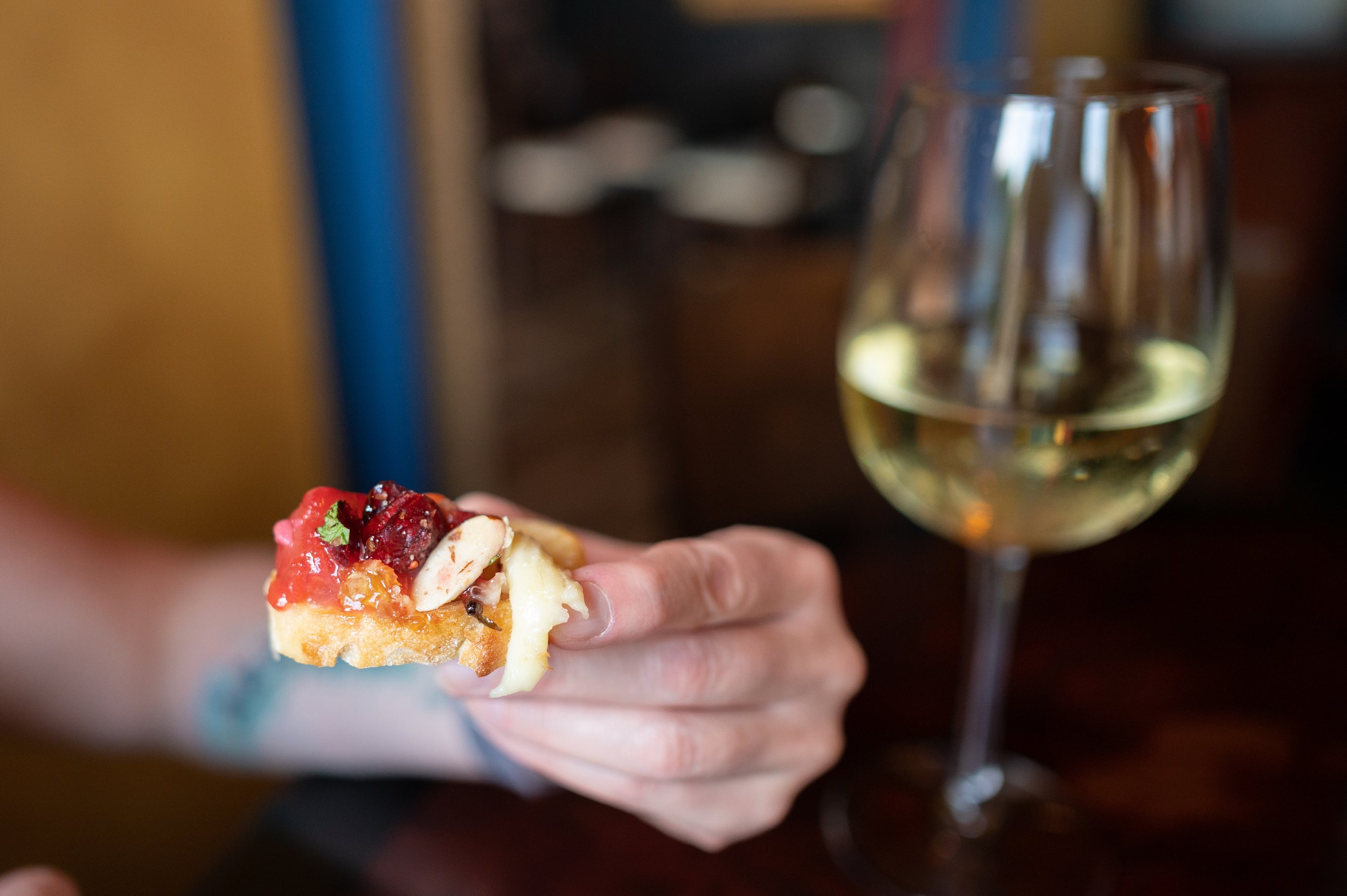
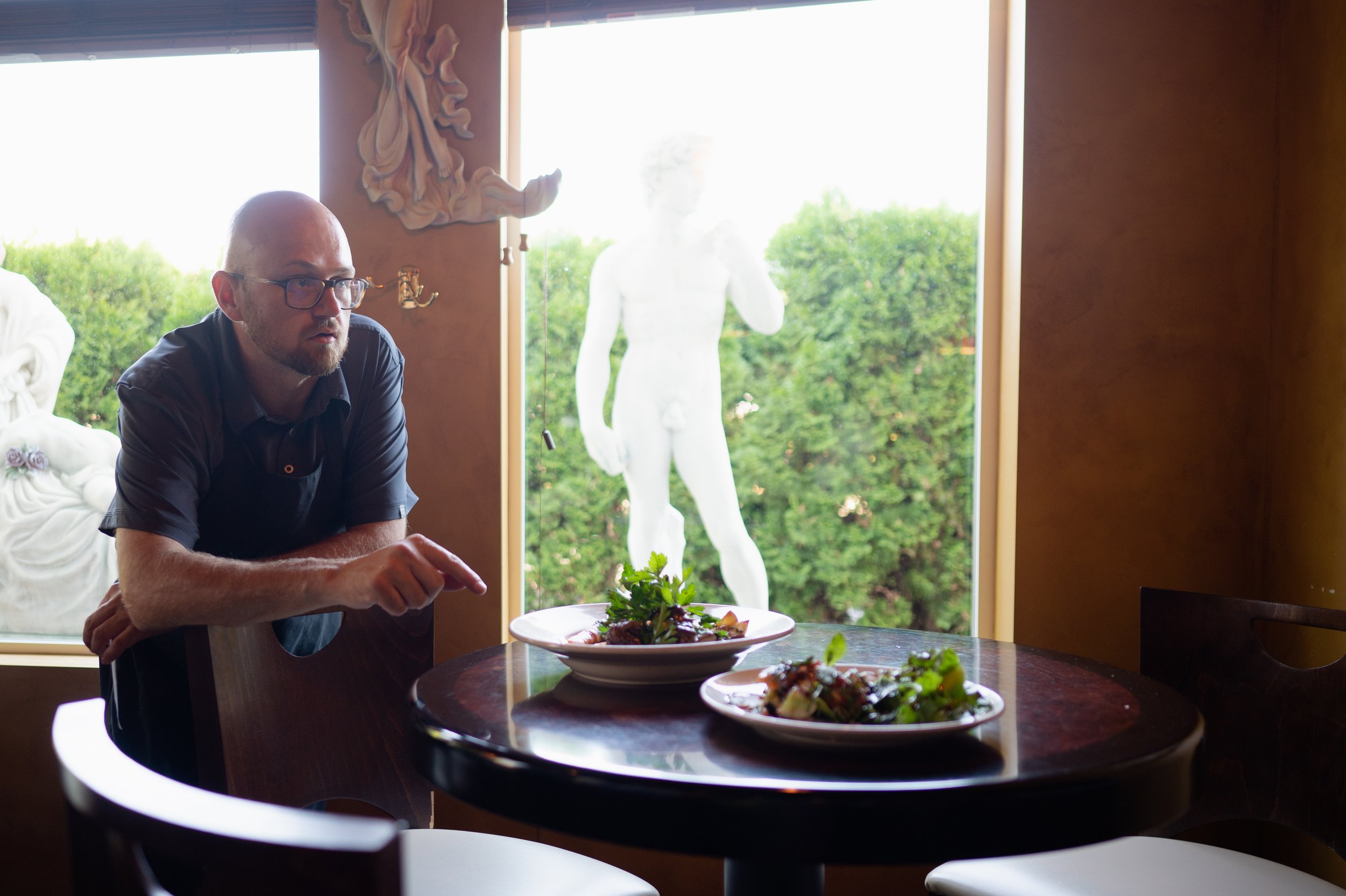


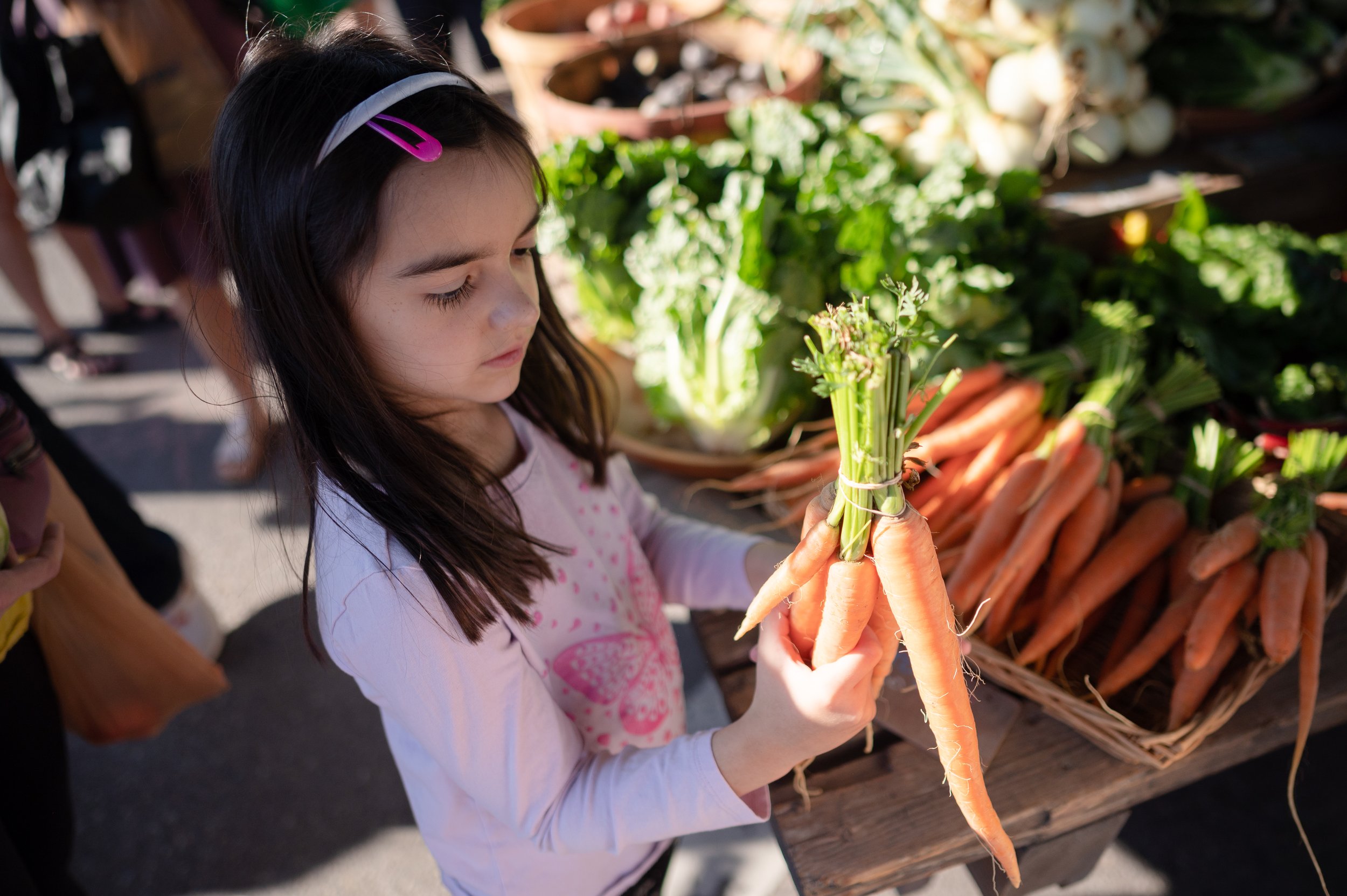
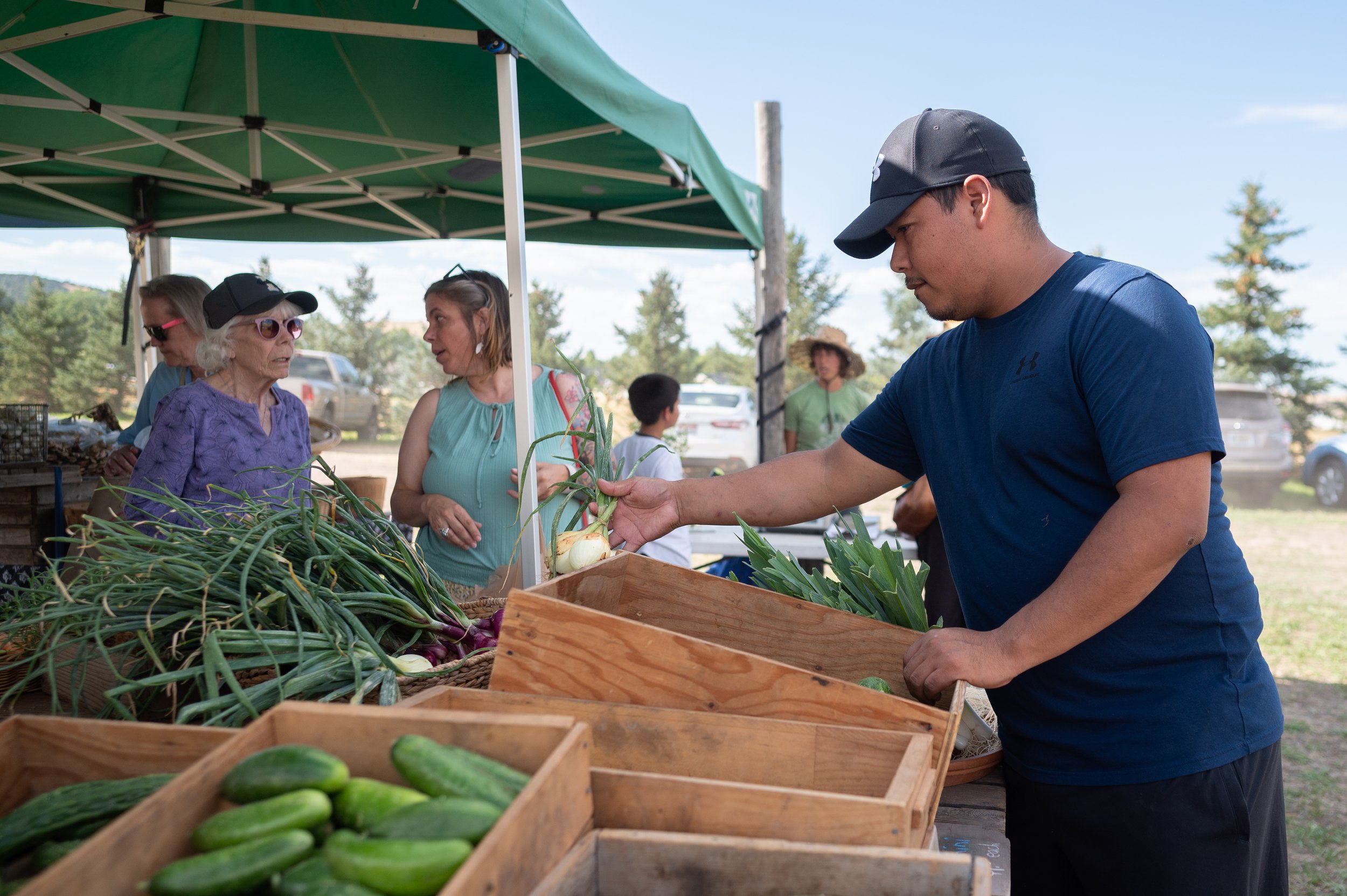
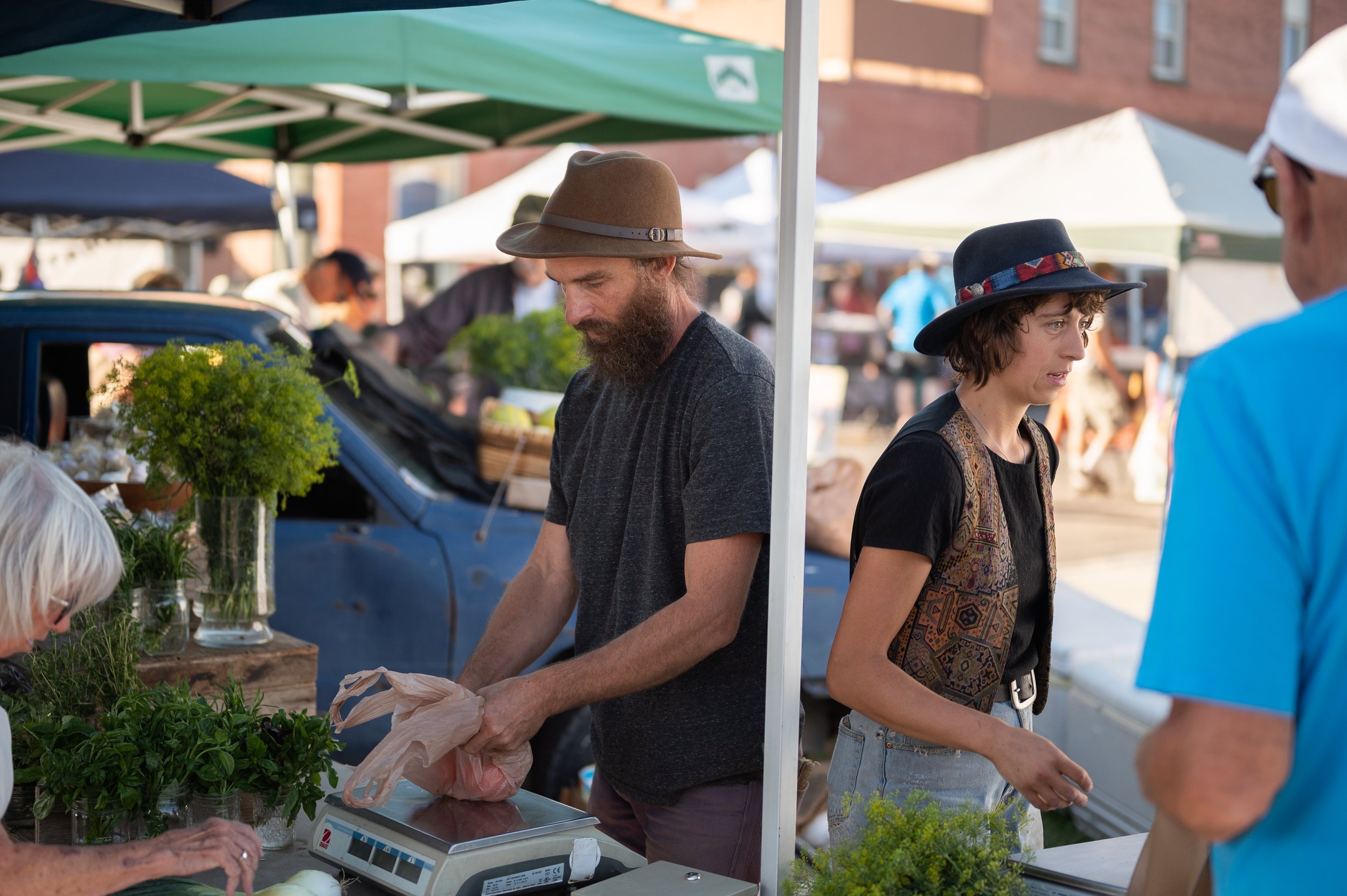
Pocatello chefs honor the labor and flavor of produce from Bowman Farm
Story and photos by Elise Barker
These interviews have been edited for clarity, length, and accuracy.
Q&A With Chef Jason Spence, Cafe Tuscano
I met up with Jason Spence at his office in Cafe Tuscano in Pocatello to talk about how he and his fellow chef, Jeff Lenon, are using local produce in their dishes.
Tell me about your partnership with Bowman Farm.
It’s never been a formal partnership. It’s more of a, “If you keep growing this stuff, I’ll keep using it.” One of my fellow chefs, Jeffrey Lenon, said, “What if we put together a new dish every week inspired by whatever we find at the Saturday Farmers Market?” I thought it was a good idea.
So we went down to the market and tried out Bowman’s live fresh herbs. It’s like painting with a new paint. You start trying new things. And you don’t want to use it for a coloring book! You want to do a special mural. I think giving yourself permission to not know what you’re doing—to not be experts—opens you up to be vulnerable so that you can learn more about yourself and your art, your craft or your creativity.
Q&A With Matthew Bowman and Charelle Walker, Bowman Farm
The following interview was conducted with Matthew Bowman and his partner Charelle Walker while they were winnowing black chickpeas at Bowman Farm.
How did you get your start?
I spent my 20s as more of a musician, writer, artist, traveler, and I needed a way to make a living as an artist. In my 30s, I worked for an organic tomato grower and got some first-hand knowledge about the economy of growing vegetables. It made sense to me that people don’t buy art all the time because it’s not a necessity. So I figured growing food is art, but you’re growing something that people have to have. Once you connect with people around food, you lose the idea of selling something. It’s not a marketing strategy or “How can I get them to consume more carrots?” They want to eat carrots.
I started in my dad’s backyard in 2008. And then every year it just doubled in size, until I moved to this land in 2017 and doubled it one more time. Since then, the fertility has been building and the labor force has been building and this whole space is basically filled up.
When you say “the fertility has been building” what do you mean?
Well, today is kind of a monumental day. We spent all morning just covering every bed with seed and putting water back on it. Getting life into the soil is fundamental to the fertility of it. The soil has mineral content, but that content isn’t available unless the microorganisms make it available. You can’t have that soil life unless you’re investing life in the soil.
When you have organic matter in the soil, you need a lot less water. This is great for our artisan market garden because the flavor of the vegetables goes way up with less water, meaning the plants are focused more on the mineral content of what they’re gathering rather than just being bloated with water.
You mentioned building your labor force before. Who works with you?
Matthew: Charelle works here full time. This is her first year full time.
Charelle: You burn out really quick when you’re trying to do this and something else.
Matthew: And there’s also two part-time workers. Then there’s about 10 other people working 2-5 hours a week.
Charelle: Those 10 people started a new system: a market trade. They come and work in exchange for Farmers Market credit.
Matthew: If somebody just came out here and worked and got paid, they would never see the whole system. But this way they’re involved in the whole circle.
Charelle: That involvement is very meaningful. Some people come here for the education. And for the community too. We have a couple women who recently moved here who sought us out and now they’re meeting other people with common interests.
Matthew: On Monday when we were processing the mint, I was just along for the ride, enjoying it. There were four women just talking about everything. I didn’t really need to be there. Everything was being taken care of.
Do you perceive your relationship with the community as being about education?
It’s not one-way. It’s not just about educating other people. It starts with us. This cooler here—we just cleaned this marjoram and we don’t really know what to do with it. If you grow it, you develop a relationship with it. And then you have to do something with it because you’ve brought it this far and paid people to help. It really doesn’t start selling until we start using it. You could call that education or you can call it connecting people with the things that are possible.
Q&A with Chef Jeff Lenon
I finished by speaking with chef Jeffrey Lenon, a chef who has a unique connection with Bowman Farm.
Tell me what the Saturday Farmers Market Feature means for you.
Jason explained what this project means for the restaurant, but my reasons are different. I did it for me. And it really saved my life. I hit a mental and physical health crisis. Focusing on a project I care about saved me.
The first few times I went to Saturday Farmers Market, I wanted this, and this, and this, and this. I wanted it all! I spent over a hundred dollars that first time! But food waste, that whole “more is better” idea, is something I really hate. All that food just gets thrown away. With the Bowman foods, you don’t want to throw anything away. Excess isn’t really an option.
What do you want people to know about your work with Bowman Farm?
I was out on my motorcycle this afternoon and drove past the farm. Matthew and Charelle were out in the field, working in this 95-degree heat and I thought to myself, “That’s what I want to honor in my food.” That’s where all the work of this food comes from. I just put it on a plate. Seven years ago, I would have dressed it up, but with food this special, I have to stand back and let it speak for itself.
